News & Media
Unisa lecture commemorates 70 years of the freedom charter
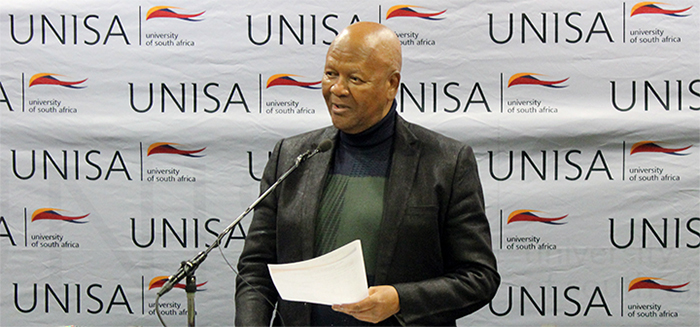
The lecture was delivered by Jeff Radebe, ANC stalwart and esteemed anti-apartheid activist
On 31 July 2025, Unisa’s Department of Institutional Advancement hosted a commemorative lecture to mark the 70th anniversary of the adoption of the Freedom Charter. Themed The people shall govern, the lecture reflected on the significant progress made in realising the ideals of the seminal document and the persistent challenges that remain.
Held at the Unisa Muckleneuck Campus, the lecture was delivered by Jeff Radebe, esteemed anti-apartheid activist and long-serving senior member of the National Executive Committee of the African National Congress (ANC).
The Freedom Charter was the statement of core principles of the South African Congress Alliance, which consisted of the ANC and its allies: the South African Indian Congress, the South African Congress of Democrats and the Coloured People's Congress. It is characterised by its opening demand, "The People Shall Govern!"
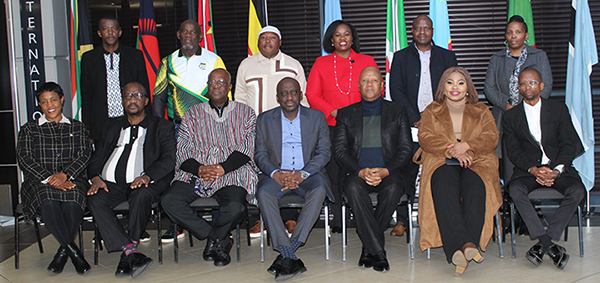
Speakers, distinguished guests, members of Unisa’s executive management and the leadership of the Department of Institutional Advancement, who hosted the lecture
In his welcome address, Matsiababa Motebele, Vice-Principal: Operations and Facilities, reminded attendees that the Freedom Charter, which was adopted in 1955, was never a list of empty promises, but a visionary document, a declaration drafted under the conditions of oppression, poverty and exile that dared to imagine a non-racial, non-sexist and socially just South Africa at a time when the idea was itself criminal.
Motebele said that the pronouncement in the Freedom Charter that the people shall govern is not just a slogan but a political command and social contract, which begs the question: Do people indeed govern? He pointed out that the vision of the land being shared among those who work is a challenge, as the majority of South Africans are landless and have no place to stay.
Delivering the lecture, Radebe outlined the historical background of the Freedom Charter. "It was," he said, "born from the collective dreams and demands of ordinary South Africans". A national convention was proposed in 1953 by Prof ZK Mathews to collect freedom demands from South Africans, and this ultimately resulted in the creation and adoption of the final document in 1955.
The ANC endorsed the Freedom Charter as policy in 1956, and it became a living liberation guide that inspired, among others, the ANC’s "Ready to govern" policy guidelines in 1992, the Reconstruction and Development Programme in 1994, and, finally, the South African Constitution, which was adopted in 1996.
Radebe remarked that achievements of the ANC-led government in the spirit of the Charter included the delivery of four million houses, high enrolment in public schools, NSFAS-funded student education and the extensive social grants programme.
Radebe then reflected on the challenges to these achievements, including unemployment, exploitation of workers, corruption, elite capture, service failures and safety issues. "Illicit financial flows on the part of multinationals," he continued, "also threatens ‘the people shall share in the country’s wealth’ as declared in the Freedom Charter."
Radebe added that the National Dialogue, set to begin on 15 August 2025, should not be a technocratic conference for the privileged few, but must be a modern-day Kliptown: a radical forum where the people speak and shape the future.
In response to the lecture, Prof Eddy Maloka, renowned academic and widely published scholar, argued that the Freedom Charter was an epoch-making event in the history of South Africa that provided a consensus on what the future South Africa should be. "Since 1994," he said, "the South African government, guided by the Freedom Charter, has been able to use state power to translate its vision into tangible realities through the constitution, legislation, programmes and policies."
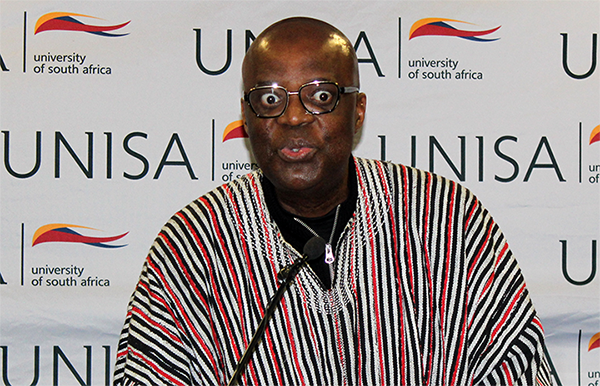
Respondent Prof Eddy Maloka
Maloka asked whether the ANC government is still able to use the state to achieve the full aspirations of the Freedom Charter. "The looming National Dialogue tells us something about where South Africa is today," he continued. "South Africa is in a crisis of unemployment, poverty and intense dissatisfaction among its citizens. Therefore, the National Dialogue must provide diagnostic tools to remedy the crisis confronting South Africans. In this initiative, the government of South Africa must be a good listener and close the gap between the government and the people."
* By William Thubakgale and Tshidiso Madiseng, Department of Institutional Advancement
Publish date: 2025-08-05 00:00:00.0


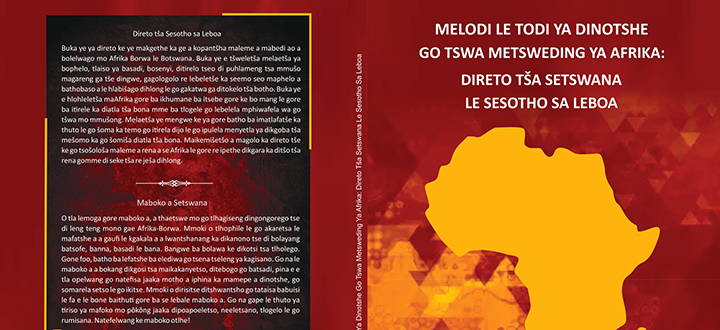 Two South African indigenous languages harmoniously blended in anthology
Two South African indigenous languages harmoniously blended in anthology
 Stormy weather: The automotive industry in flux
Stormy weather: The automotive industry in flux
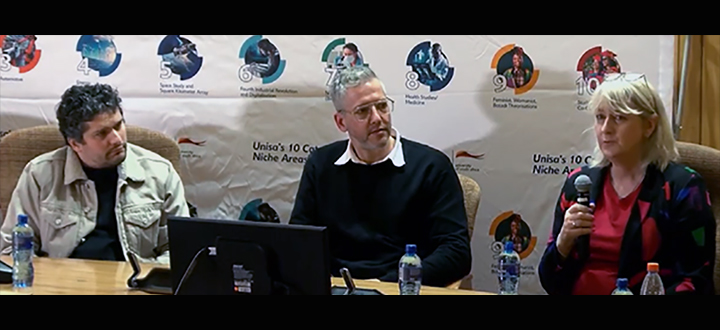 Higher education institutions urged to be intentional about academic technologies
Higher education institutions urged to be intentional about academic technologies
 Unisa alumna inspires entrepreneurial confidence
Unisa alumna inspires entrepreneurial confidence
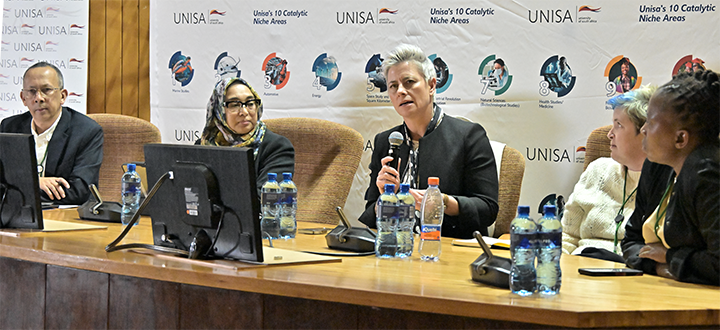 Promoting innovations that combat health and safety threats
Promoting innovations that combat health and safety threats